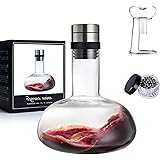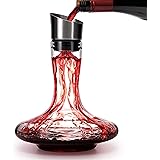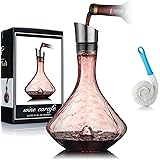Unveiling the Truth About Alcohol’s Health Benefits: What the Science Says
For decades, many of us have harbored a common belief: a glass of red wine here, a beer there, could actually be beneficial for our health, particularly for our heart. This notion has permeated popular culture, leading some to genuinely believe that moderate alcohol consumption contributes to overall wellness. However, as the video above eloquently explains, the landscape of scientific understanding surrounding alcohol’s impact on our bodies is undergoing a significant re-evaluation. It turns out that the perceived “health benefits of alcohol” are, in fact, a widespread misconception.
Indeed, the idea that alcohol offers any genuine health advantages is a pervasive myth. Contemporary research consistently reveals a very different narrative, one that challenges long-held beliefs about alcohol and health. This comprehensive guide delves into the scientific consensus, examining why alcohol lacks true health benefits and exploring the mechanisms through which it can inflict damage, even in small amounts.
Debunking the Myth: Zero Health Benefits of Drinking Alcohol
The core message emerging from the latest research is strikingly clear: there are simply no health benefits associated with drinking alcohol. This conclusion stands in stark contrast to previous recommendations, which often suggested that a “moderate” intake—defined as one drink per day for women and up to two for men—could protect against heart disease. Such historical advice, prevalent for over 40 years, is now being systematically dismantled by rigorous scientific inquiry.
Many individuals have even encountered the curious theory that abstinence from alcohol might itself be a cause of heart disease. This notion, however, lacks robust scientific backing and highlights the depth of misinformation that has circulated regarding alcohol’s effects. Modern studies, utilizing more advanced methodologies and larger sample sizes, paint a more accurate picture of how alcohol interacts with human physiology.
The Real Impact of Drinking Alcohol on Your Body
Far from offering protection, alcohol, even in small quantities, can exert detrimental effects on vital organs, most notably the brain and heart. A groundbreaking study from the University of Oxford, conducted between 2014 and 2020 and involving an extensive cohort of 25,378 participants, provided compelling evidence. Researchers concluded that even amounts below the traditionally defined “moderate” level can negatively impact both brain structure and cardiovascular health.
This study specifically challenged the long-held belief that alcohol could somehow benefit the heart. Its findings underscore that the risks associated with alcohol consumption begin at very low levels, contradicting the idea of a “safe” or beneficial threshold. Consequently, public health recommendations are shifting to reflect this evolving understanding, emphasizing that no amount of alcohol is truly risk-free.
Beyond Antioxidants: The Problem with Alcohol
A common argument in favor of certain alcoholic beverages, particularly red wine, centers on their antioxidant content, derived from grapes. While it is true that grapes contain beneficial antioxidants like resveratrol, the presence of alcohol fundamentally negates these potential advantages. The critical distinction lies between consuming grapes, which are healthy, and consuming alcohol, where the alcohol itself acts as a toxic compound.
Therefore, any purported benefits from antioxidants in wine are overwhelmingly outweighed by the harmful effects of the ethanol within the drink. To gain antioxidant benefits, one can simply consume whole grapes, berries, or other antioxidant-rich foods, bypassing the damaging effects of alcohol entirely. The focus must remain on the alcohol content, which is the primary concern for health.
The Toxic Cascade: Acetaldehyde and Free Radical Damage
Understanding alcohol’s true impact requires a look at its metabolic pathway within the body. When alcohol enters your system, your liver works diligently to process it. An enzyme called alcohol dehydrogenase (ADH) plays a crucial role in this process, converting alcohol (ethanol) into a highly toxic compound known as acetaldehyde.
Acetaldehyde is far more damaging than alcohol itself. It acts as a potent toxin that can harm cells and tissues throughout the body, particularly in the liver, heart, and brain. This toxic byproduct causes significant oxidative stress, leading to widespread free radical damage. Free radicals are unstable molecules that can damage cellular components, contributing to inflammation, aging, and an increased risk of various diseases. The liver, as the primary processing organ, bears the brunt of this toxic conversion, suffering considerable cellular damage and impairment.
Strategies to Mitigate Damage If You Choose to Drink
While the clear message is that no amount of alcohol is truly beneficial, acknowledging that some individuals may still choose to consume it is important. For those who opt to drink, understanding how to minimize potential harm becomes a crucial aspect of damage control. Fortunately, several strategies can help protect your body from some of the adverse effects.
These approaches focus on either reducing cravings, substituting alcohol with healthier alternatives, or supporting your body’s detoxification processes. Implementing these strategies can offer a degree of protection against the toxic byproducts generated from alcohol metabolism.
Healthier Alternatives and Supplements for Damage Control
Consider these proactive steps to support your health journey, whether by replacing alcohol or reducing its impact:
- Kombucha Tea: This fermented beverage offers a similar fizzy, rich texture to beer or champagne, along with a mild relaxation effect. It contains only trace amounts of alcohol, making it a viable substitute for those seeking a unique fermented drink experience without the significant health risks. Kombucha provides probiotics beneficial for gut health, offering a true health benefit unlike alcoholic beverages.
- Kudzu Root Extract: Originating from traditional Chinese medicine, kudzu root is gaining recognition for its potential to reduce alcohol cravings. Taking it as a supplement, especially when combined with L-glutamine, has shown promising results in helping individuals manage their desire for alcohol. This combination supports neurotransmitter balance, which can be disrupted by alcohol consumption.
- Milk Thistle: Known for its hepatoprotective properties, milk thistle can be a valuable ally if you choose to consume alcohol. Taking this supplement before drinking can help protect your liver cells from the toxic effects of acetaldehyde and other harmful substances. Silymarin, the active compound in milk thistle, is a powerful antioxidant and anti-inflammatory agent that supports liver regeneration and detoxification pathways.
- Fasting: Implementing periods of fasting, particularly the day after alcohol consumption, can significantly aid your body’s recovery. Fasting enhances your body’s natural antioxidant network and stimulates cellular repair mechanisms, including autophagy, which helps clear damaged cells. This process can be instrumental in repairing some of the damage sustained by the liver and other organs from alcohol.
By understanding the profound impact of alcohol on the body and proactively incorporating these strategies, individuals can make more informed choices about their health. Ultimately, the emphasis remains on prioritizing long-term wellness over fleeting indulgence.







